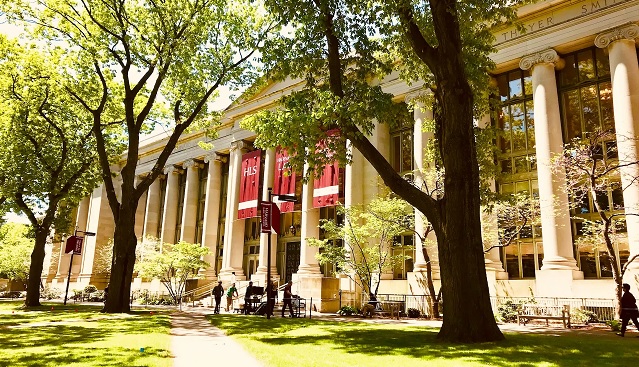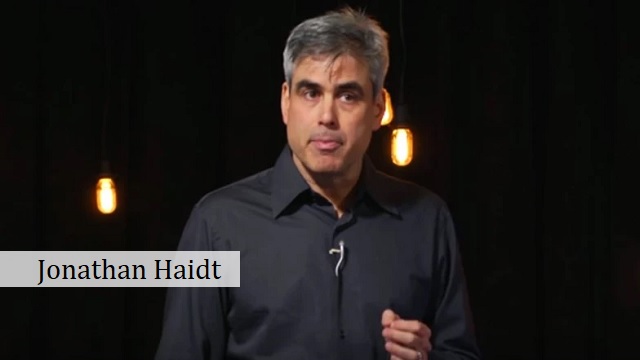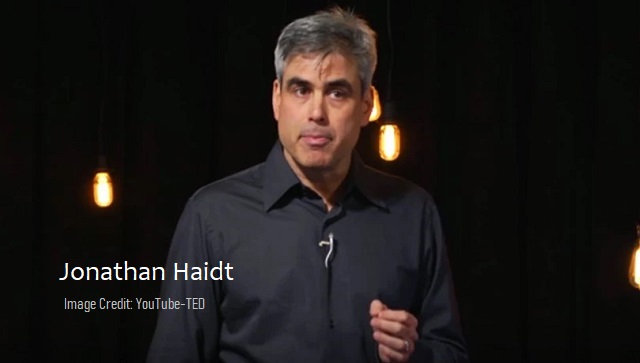Is Harvard hopelessly woke? What Harvard is really like

Like most things, Harvard is what one makes of it — and this can include experiences rooted in faith and friendship.
Harvard is often seen as the archetypal American university, offering a model that many others seek to emulate. So, as a new school year and new application season begin, it seems fitting to ask: what is this storied institution really like anyway? Is it home to heroes or heretics? Maker of gods… or the godless? My response is quite simple: neither extreme is accurate. Harvard is not as heavenly as some think; fortunately, it’s not as bad either.
My college decision was practically effortless. Harvard, I was told, offered everything a motivated, book-smart student could want: challenging courses; fabulous research opportunities; world-class professors; and, most importantly, insightful, intrepid, intellectually curious peers.
I envisioned a campus alive with students who genuinely loved learning, who asked big questions and pursued them to their limits, who discussed Dostoyevsky at lunch and astrophysics at dinner, and who would challenge, shape, and inspire me over the course of our college journey.
Needless to say, this vision wasn’t entirely accurate. Arriving on campus last fall, I was surprised to find that many of my peers did not choose Harvard out of a deep, reverent hunger for veritas. Rather, their motives were primarily mercenary: they had enrolled for the degree and the connections. Almost every Harvard student I know really is a smart, accomplished individual; test scores and ambition, however, are not necessarily synonymous with intellectual curiosity.
Lowered standards, heightened biases
Critics of Harvard tend to focus on academic standards and political bias. In terms of academics, it is telling that Harvard’s two most popular concentrations are economics and government. Read: wealth and power. Students with these two goals are incentivised to take easy courses whenever possible: between grade inflation and the competitive nature of consulting applications, a B from a fabulous but challenging professor just won’t do.
As such, students offset rigorous concentration requirements with “gems,” pleasant, untaxing courses in which A’s are guaranteed and learning is optional. Last fall alone, over 800 students enrolled in a gen-ed course fittingly entitled “Sleep,” though how many attended more than one lecture remains unclear.
Administrators, meanwhile, do little to counter this trend. Notorious gems (“Sleep” excepted) are occasionally identified and restructured, but with tuition-paying customers to please and a reputation to maintain, addressing lowered standards will be essentially impossible.
The real tragedy is not the proliferation of easy A’s but the slow suffocation of liberal arts education. In lieu of a robust core is a smattering of “distributional requirements” easily satisfied by niche, fringe, or downright non-substantive courses. In other words, “Sleep” might be the only science course a Harvard student ever takes.
Thus, it’s possible to graduate from Harvard without challenging one’s prejudices, without genuinely exploring different disciplines, and without ever diverting one’s gaze from the holy trinity of law, finance, and consulting. Alas, the utilitarian ethos prevails; it was never about veritas anyway.
Harvard critics’ true concern, however, is not academic standards but politics — just how radical is the “Kremlin on the Charles”? According to the numbers, very. While 82 percent of Harvard faculty identify as liberal or very liberal, a mere 1 percent identify as conservative, and none identify as very conservative. The student body, luckily, boasts slightly more ideological diversity: conservative or very conservative individuals made up 6 percent of the Class of 2022, and nearly 70 percent were progressive or very progressive.
Can academic freedom, civil discourse, or mere open-mindedness thrive in such an environment? Here are a few illustrative examples that make it tempting to view Harvard as a powerful brainwashing machine:
First, my hallmates and I attended a mandatory, dorm-wide meeting at the start of the academic year to discuss the hookup culture. We were tasked with creating explanatory posters exploring the hookup culture in its various dimensions. One group of students crafted a suitably vague definition of “hookup” for their poster, while another brainstormed adjectives to describe hookups (highlights include “exciting” and “experimental”). Not once were other approaches to sex and dating, let alone inconvenient biological realities (sex not infrequently makes babies), ever mentioned.
Second, this past semester I watched a trembling professor issue a formal apology at the behest of her outraged students and teaching staff. Her crime: reading aloud a passage from Invisible Man — a novel advocating civil rights and equality — that contained a racial epithet. Although this incident had occurred during a discussion section before a small subset of enrollees, critics swiftly and loudly demanded that she ask the entire class for forgiveness. Pressuring a professor to apologise for her language threatens academic freedom. Critics certainly deserve a voice, but not at the expense of their professor’s.
Finally, I saw a formerly well-liked friend ostracised by her residential housemates during her last month at Harvard. This jovial, whip-smart senior was a Latina Democrat; she volunteered regularly at a youth homeless shelter, vocally advocated racial justice, and actively disliked Trump. Just participating in two pro-life rallies, it turns out, was enough to outweigh all of that.
Faith, friendship, and signs of hope
While such everyday occurrences make it tempting to believe that Harvard is a lost cause, there are two important limiting factors that suggest otherwise. First, because Harvard is a very large institution — with twelve graduate and professional schools, fifty concentrations in the undergraduate college, and an extensive array of administrative offices — centralised or consistent strategic communication is next to impossible. Having many supervisors, counterintuitively, leads to little supervision — within this large bureaucratic institution are many conservative niches, ranging from a controversial pseudonymous publication to a philosophical debating society to a growing pro-life presence on campus.
The second limiting factor is Harvard’s inherent elitism. Prestige and influence require class distinctions; in a truly equitable world, Harvard does not exist. Thus, Harvard will continue to champion progressivism — but never enough to endanger its own future. Harvard students of all political stripes perceive this hypocrisy; if anything, they graduate not more liberal but more cynical. So much for the formidable brainwashing machine.
In addition to these two limiting factors, my first year — which was hands-down my happiest in a decade — suggests that Harvard is not a lost cause. I learned to read ancient Greek, solved triple integrals, and wrote an essay on Fredrick Douglass’s conception of the human soul. I kayaked on the Charles, explored Boston’s fabulous art museums, and attended a weeklong seminar in Oxford. I befriended the dining hall workers, learned how to swing dance, and performed Schumann with my chamber ensemble.
Despite the prevalence of secularism and credentialism at Harvard, faith and friendship were central to my joyful first year. In fact, Christianity, particularly Catholicism, is alive at Harvard. Every morning, a dozen students attend daily Mass before eating breakfast together in a nearby dining hall. Weekly talks at the Harvard Catholic Center precede solemn adoration accompanied by a student band. And this past Easter alone, thirty-one members of the Harvard community were fully initiated into the Catholic Church.
Outside of the Catholic and Christian communities, Harvard students are very respectful of religion. Talking openly about my Catholic faith elicits not smirks and grimaces but genuine curiosity and the occasional request to join me at Mass. Although I attended Catholic school all my life, my faith life has never thrived as at Harvard.
Nor have I ever been blessed with such strong, beautiful friendships. Just one week into freshman year, I had already found a group of kind, intelligent friends. Yes, our everyday conversations are less intellectual than anticipated; yes, our educational goals differ significantly. But far more important is character. My friends at Harvard are truly virtuous and generous people.
What’s more, my experience is hardly singular. Personality is an important factor in Harvard’s admissions process — so while many admitted students are indeed ambitious and career-oriented, they are for the most part essentially decent people. This emphasis on personability combined with its unique housing system, active extracurricular life, and countless study abroad and fellowship opportunities means that Harvard intentionally and successfully fosters friendship.
One year into my Harvard career, I can report that no stereotype of the university is entirely accurate. By no means is Harvard an immaculate place: intellectual curiosity often suffers at the expense of utility, classes and administrators can be overly political, and students with unpopular views are often frightened into silence. Still, I have great hope for Harvard.
While it’s true that students can avoid Homer, Shakespeare, or Tolstoy if they wish, it is equally true that those fascinated by such literary giants will encounter first editions of their texts in the rare books library and brilliant professors eager to elucidate them.
Though Harvard students can graduate without having explored questions about God, morality, and the meaning of life, those brave enough to ask can consult prominent theologians and learned priests, travel to Jerusalem on Harvard’s dime, or simply walk down Bow Street to pray in magnificent St. Paul’s.
In the end, Harvard, like most things, is what one makes of it. It can never be perfect; what it can be is a haven for faith, friendship, and the pursuit of veritas.
This article has been republished with permission from The Public Discourse
AUTHOR
Olivia Glunz
EDITORS NOTE: This MercatorNet column is republished with permission. All rights reserved.


